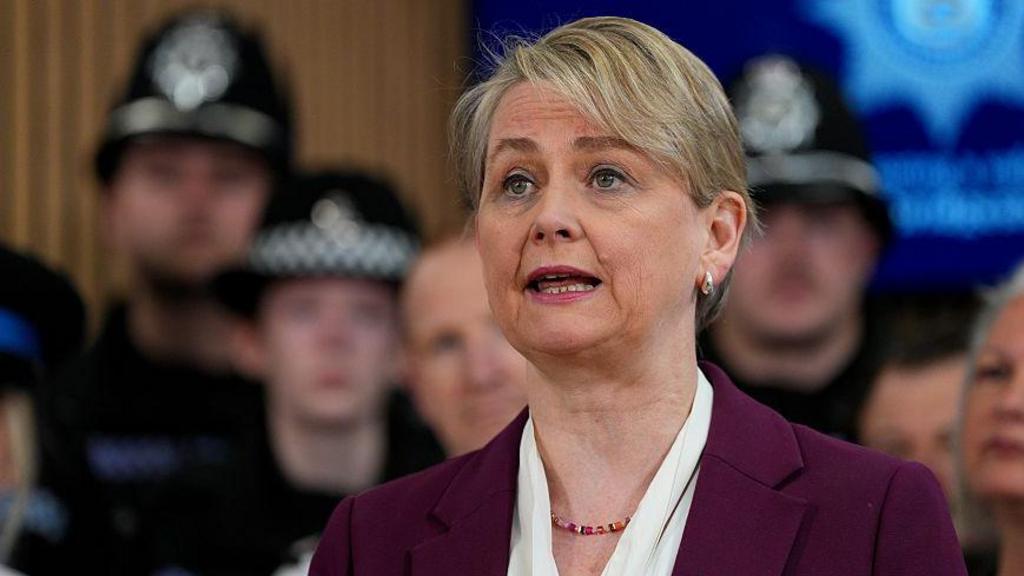The UK government has announced that asylum seekers convicted of sexual offences will be barred from remaining in the country.
Currently, those sentenced to over a year in prison, as well as individuals convicted of terrorism or war crimes, can be refused asylum and deported under the Refugee Convention.
Ministers now seek to broaden these criteria to cover anyone convicted of crimes that would result in placement on the UK sex offenders register, irrespective of the sentence length.
Home Secretary Yvette Cooper stated the move would “ensure these appalling crimes are taken seriously.”
However, the Conservative Party has criticised the proposals as “too little, too late.”
In an interview with the BBC, Cooper confirmed that ministers would seek to categorise sex offences as “particularly serious crimes,” giving the government greater authority to deny asylum claims from convicted sex offenders.
Cooper also advocated for “stronger rules” to prevent judges from blocking deportations on human rights grounds and suggested Parliament could establish a new legal framework, although no specific details were announced.
A review is underway into the application of Article 8 of the European Convention on Human Rights (ECHR), which protects the right to family life in immigration cases, with updates anticipated in the near future.
Some migrants and asylum seekers have used Article 8 to successfully challenge their deportation orders.
Appearing on BBC Radio 4’s Today Programme, Cooper expressed concerns over certain cases where the government disagreed with judicial decisions.
She commented, “Respect for family life is to be balanced against other factors, including the public interest, government policy decisions, and considerations regarding border security and control.”
It remains unclear how many cases could be impacted by this legislative change.
The proposed reforms would affect individuals whose offences place them on the sex offenders register in the UK.
The Home Office also plans to include individuals convicted of comparable sexual offences abroad, where such crimes would warrant registration in the UK.
According to sentencing guidelines, most sexual offences in England and Wales are punishable by terms exceeding one year.
However, less severe offences, such as first-time sexual assault, exposure, or sexual communication with a child, may result in sentences shorter than 12 months.
Cooper stated that these new measures would help prevent incidents similar to that of Abdul Ezedi, who was granted asylum despite a prior conviction for sexual offences.
Ezedi died by suicide after being suspected of attacking his ex-girlfriend and her children with a corrosive substance in south London in January last year.
He had previously pleaded guilty to sexual assault and exposure in 2018 and was placed on the sex offenders register, yet was granted asylum in 2020 following two unsuccessful applications.
These changes are expected to be introduced as an amendment to the Border Security, Asylum, and Immigration Bill currently before Parliament.
Additionally, the government plans to introduce a 24-week deadline for appeals by foreign national offenders and housed asylum seekers in an effort to reduce backlogs.
Conservative shadow home secretary Chris Philp described the proposed legislation as inadequate and pointed to a record 10,000 Channel crossings this year.
He argued, “Foreign criminals pose a risk to British citizens and should be removed, but legal challenges based on human rights often impede deportation.”
Philp also contended that the Conservatives had already proposed firm reforms to deport foreign offenders and disapply the Human Rights Act to prevent activity by lawyers and campaigners from obstructing removals.
“Labour opposed these measures – they are not committed to border control,” he added.
The Home Office said that utilising artificial intelligence (AI) to process asylum claims could reduce case handling times by up to an hour through the transcription of interviews and retrieval of country information.
Further reforms will see enhanced authority for the Immigration Advice Authority to levy fines up to £15,000 for providing fraudulent advice or falsely claiming to be a registered immigration lawyer.
There will also be tighter controls for foreign offenders living in the community, including mandatory electronic tagging, strict night curfews, and enforced exclusion zones.
Enver Solomon, chief executive of the Refugee Council, welcomed measures to improve the speed of asylum decisions, but cautioned that reliance on AI could “backfire” if it led to flawed rulings that are challenged in court.
The Law Society of England and Wales also voiced concerns, predicting the targeted appeals deadline would be “unworkable” given current pressures on the justice system.
Subscribe to our Politics Essential newsletter for comprehensive political coverage, insight from across the UK, and analysis on the latest developments, delivered directly to your inbox each weekday.
Metropolitan Police Commissioner Sir Mark Rowley has warned that the force will face difficulties meeting key crime reduction targets unless additional funding is provided.
Official data on the nationality and offences of those awaiting deportation is expected by year-end.
A charity supporting refugees through English lessons and social activities has appealed for more local volunteers.
A new community café, Without Borders, offering work and support for refugees is scheduled to open in June.
A legal adviser reports that some asylum seekers are experiencing waits of up to seven years for an interview.

